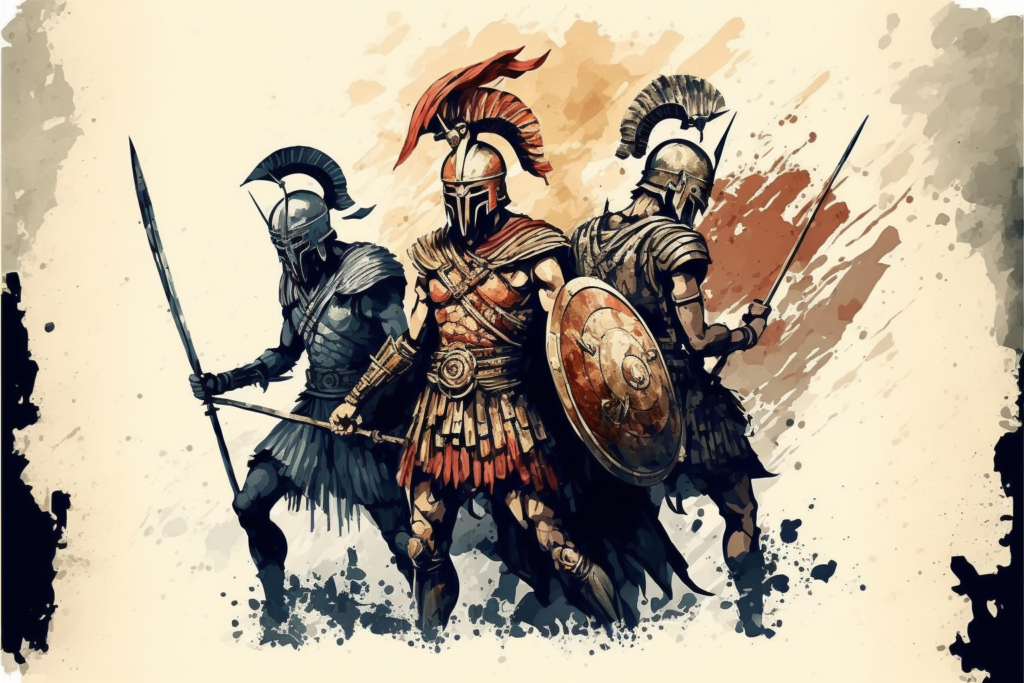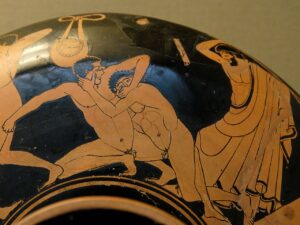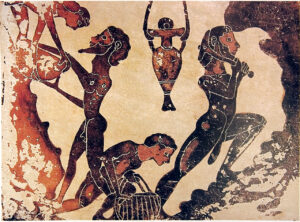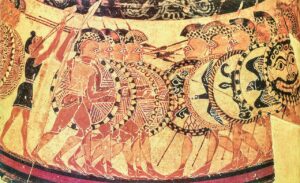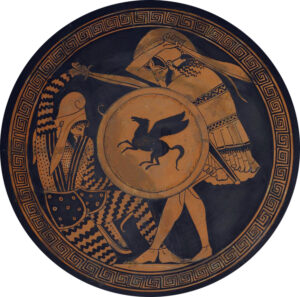War and warfare in ancient Greece were an important aspect of ancient Greek society, and the ancient Greeks engaged in many conflicts throughout their history. The ancient Greeks were divided into many independent city-states, each with their own government, army, and interests. These city-states often came into conflict with one another over territory, resources, and power.
The ancient Greeks were renowned for their military prowess and tactics, which formed the basis of modern military strategy. This article delves into the intricacies of ancient Greek warfare, from the equipment and tactics used by soldiers to the strategies employed by generals.
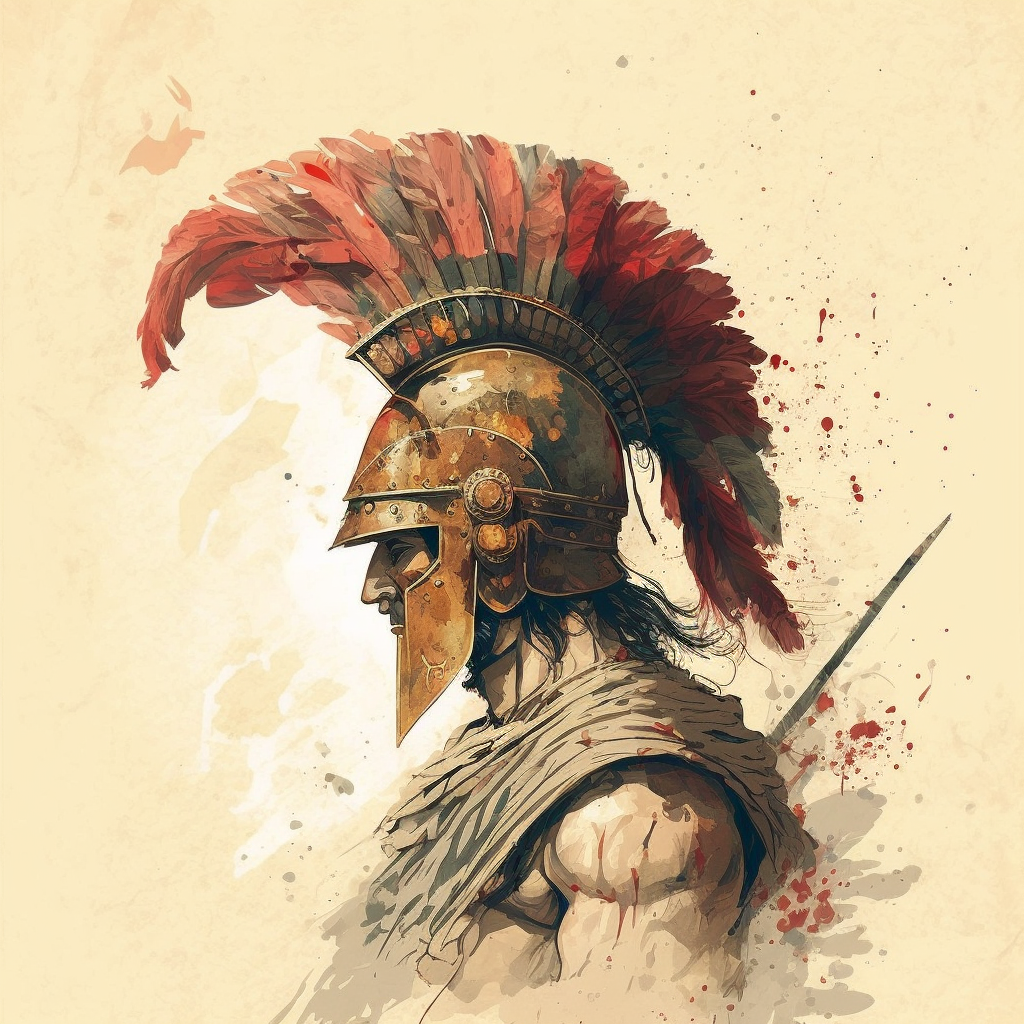
Ancient Greek Soldiers: Hoplites and Phalanx Formations
The ancient Greek military was composed mainly of hoplites, citizen-soldiers who were expected to provide their own weapons and armor. They were equipped with a bronze helmet, a bronze breastplate, and a round shield made of wood and covered in bronze. In addition, they carried a short sword and a spear. Training was rigorous, with soldiers undergoing physical and tactical training from a young age. This emphasis on training and equipment ensured that Greek soldiers were among the most skilled and formidable warriors of their time.
The hoplites fought in a formation called the phalanx. This formation consisted of rows of ancient Greek soldiers, each carrying a large shield, with the front row of soldiers brandishing their spears in a display of intimidation. The soldiers stood shoulder-to-shoulder, creating a wall of shields that was nearly impenetrable. The phalanx formation allowed the Greeks to effectively utilize their superior training and equipment, as the formation provided both offensive and defensive capabilities.
They also had elite soldiers known as epibatai (translated as “those who sail on board”) and peltasts (light infantry).
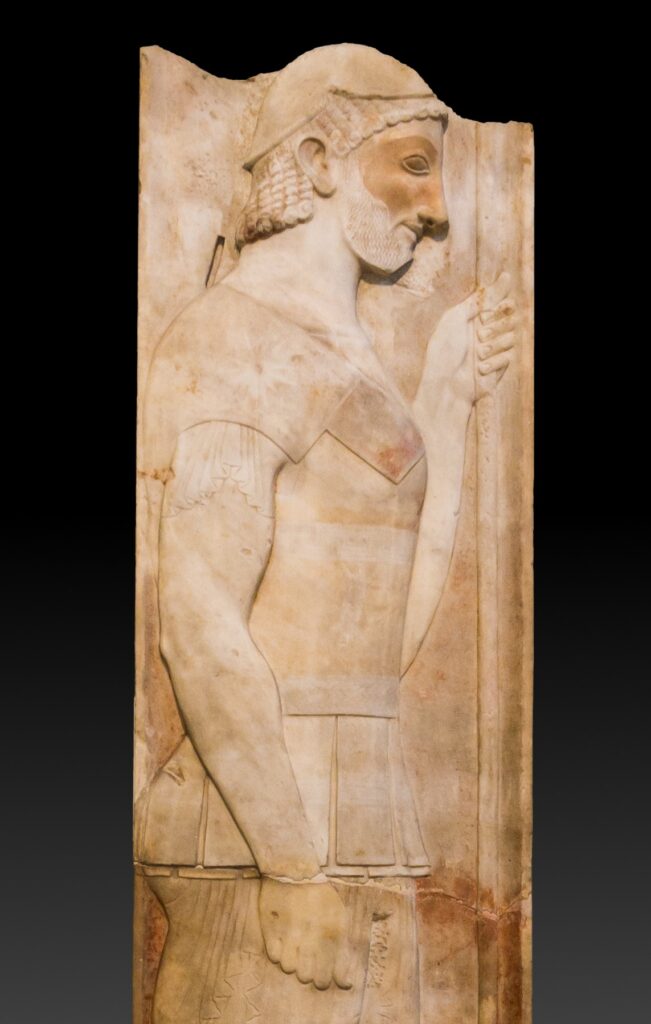
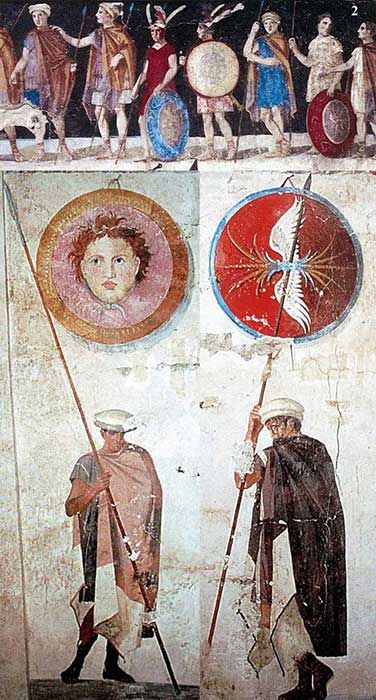
Warfare Strategies in Ancient Greece
Greek generals were known for their strategic planning and execution. They carefully evaluated terrain, resources, and enemy strengths and weaknesses in order to develop effective battle plans. During battle, they often employed clever tactics, such as flanking maneuvers or fake retreats, to outmaneuver the enemy. Flanking refers to circling around the enemy position and attacking from one or both sides. Additionally, ancient Greek generals would sometimes fake retreat in an effort to surprise the enemy with a later attack. These strategies, combined with the discipline and training of the soldiers, allowed the Greeks to achieve numerous victories against seemingly insurmountable odds. As such, strategies and planning were important to war and warfare in ancient Greece.
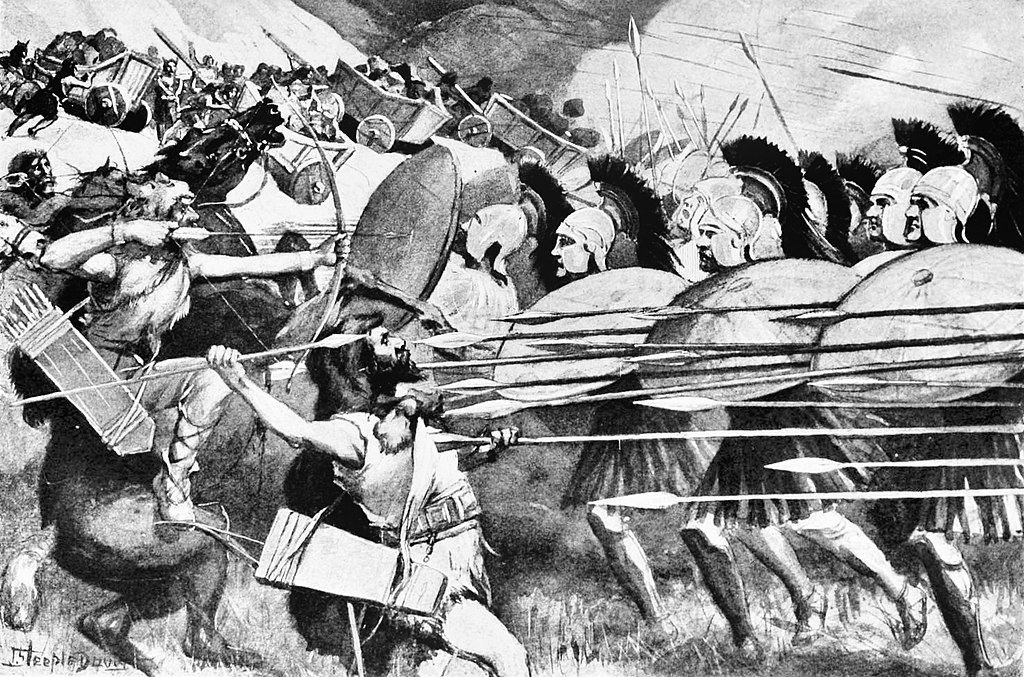
Peloponnesian War in Ancient Greece
One of the most significant conflicts in ancient Greek history was the Peloponnesian War, which lasted from 431 to 404 BCE, and was fought between Athens and Sparta, two of the most powerful city-states of the time. The war was fought primarily on land and sea, and resulted in the defeat of Athens and the rise of Sparta as the dominant power in Greece. The war highlighted the ongoing conflict of interest between the different city-states of Ancient Greece and the nature of warfare at the time. Historians remember the Peloponnesian War as one of the most significant ancient Greek wars.
Greco-Persian Wars in Ancient Greece
The ancient Greeks also fought many wars against outside invaders, such as the Persian Wars. These were a series of conflicts fought between Greece and the Persian Empire in the 5th century BCE. The Greeks, led by city-states such as Athens and Sparta, were able to defeat the Persians and preserve their independence. Known as the ‘Greco-Persian Wars’, these conflicts occurred from 499 BCE until 449 BCE.
During this time, the Ancient Greek city-states generally united together against the Persian armies, which were led by ‘Darius the Great’.
The major battles of the Greco-Per Wars took place at at Marathon, Thermopylae, Salamis, and Plataea. Each of these battles was significant in its own right, and each had a lasting impact on the outcome of the war.
At the Battle of Marathon (490 BCE), the Greeks defeated the Persians and set the stage for further resistance against the Persian Empire. The Battle of Thermopylae, which occurred a decade later in 480 BCE, saw a small force of Greeks, led by the warrior-king Leonidas, hold off a much larger Persian army, buying time for the rest of Greece to prepare for battle. The Battle of Salamis also occurred in 480 BCE and was a decisive naval victory for the Greeks, which effectively ended the threat of a Persian invasion. Finally, the Battle of Plataea, which took place in 479 BCE saw the Greek army, under the leadership of Pausanias, defeat the Persian army and secure Greek independence.
Legacy of War and Warfare in Ancient Greece
The impact of war and warfare in ancient Greece extends far beyond the ancient world. The tactics and strategies employed by the Greeks continue to be studied and emulated by military leaders and tacticians to this day. Their emphasis on training, discipline, and strategic planning set a standard that has been adopted by military forces around the world. The legacy of warfare in ancient Greece lives on, serving as a testament to the skill and ingenuity of the ancient Greeks.

